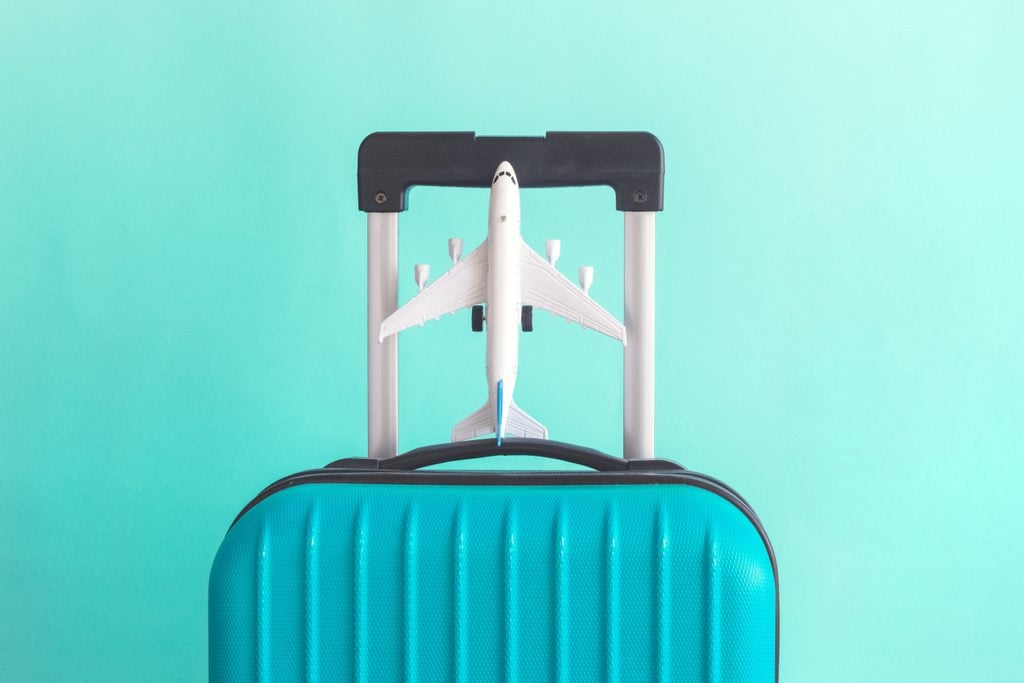This Is When Travel Insurance Is Worth It—and When It Isn’t
Updated: Feb. 15, 2023

Here's what experts say.
You’re planning a big cruise for next year—or maybe you’re just flying to see relatives for Thanksgiving. When is it worth it to get travel insurance?
What does travel insurance cover?
You can get two types of travel insurance: basic and comprehensive. “Whenever I book American Airlines online, they always offer me the cancellation insurance,” says Rick Garlick, a vice president at Magid Associates and a member of the International Society of Hospitality Consultants. “So if I get sick or I miss the connection, that’s what we would call basic coverage.”
Then there’s comprehensive travel insurance, which also includes medical insurance. “God forbid I’m hiking in the jungle somewhere and I have to be medevacked out of the jungle. That could cost up to $50,000,” Garlick says. “Or let’s say something really crazy happens in the place I’m going. That’s what the more comprehensive insurance would cover.”
When should you get travel insurance?
Buying travel insurance makes sense when you’re traveling internationally. The typical cost of an international trip is more than $3,000, Garlick says. People want the best rate, so they book their flights far in advance. But then life happens; maybe a family member loses a job. But because you’ve paid so much upfront, you want to protect that investment. “I have been burned on this, where I’ve booked a trip nine months in advance and my whole life is different nine months later,” Garlick says.
You may also want to invest in travel insurance if you’re eyeing a cruise. Research shows that people plan a cruise on average a year in advance. Having travel insurance could give you the flexibility to reschedule if, say, a hurricane suddenly appears on the horizon. “Cruise lines typically offer that sort of insurance package, because they recognize that you may be traveling in a hurricane,” Garlick says.
Travel insurance also covers you in case of sickness or injury when you’re outside the United States. Even if you’ve got health insurance, there’s a good chance the health care facilities in other countries won’t be part of your provider network. And it can also be important if the country you’re visiting doesn’t provide the care you need. For example, if you need a blood transfusion, but where you are doesn’t screen for bloodborne illness, you’re going to need some sort of ambulatory care to get you back.
“If you don’t have that coverage, that ambulance is going to cost you tens if not hundreds of thousands of dollars,” says Shylar Bredewold, owner of Odyssean Travel. “And you could cover this with a $150 policy.” Keep in mind that the cost of travel insurance can vary widely. And make sure you read the fine print to see exactly what is—and isn’t—covered.
Finally, if you’re traveling in a volatile area, it’s good to have the peace of mind that you have medical coverage. “People just have to be smart,” Garlick says. “The world, unfortunately, isn’t what it used to be.” If you’re traveling overseas, you should also know to pack these items, too.
When don’t you need travel insurance?
If you’re taking a short trip within the United States with a short lead time, though, you can probably pass on the travel insurance.
“Most domestic trips are planned a shorter time out and cost less money,” Garlick says. The average four-day trip, for example, would probably cost you about $600. In addition, if you or a family member gets sick or hurt during the trip, and you have medical insurance, you would probably already be covered.
Another reason to skip the travel insurance? If you book with a credit card, your credit card may already provide it—this is just one of the things smart travelers know to do before a flight. Garlick’s American Advantage card offers it as part of his annual fees; many Citibank cards also include that perk. And if you’re a member of an airline’s premium program, you may get put on the standby list automatically if a flight gets canceled.
Finally, you may think you’re getting flexibility if you book a flight in advance and get travel insurance. But read the fine print. Typically, cancellation policies have conditions and you can only use them when you get sick.
Bottom line: Consider the type of trip you’re taking and the conditions where you’re going before making a decision about travel insurance. All packed? Now check out these common travel tips you can ignore.